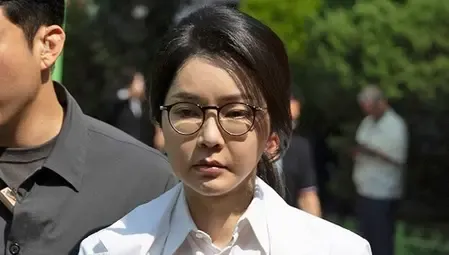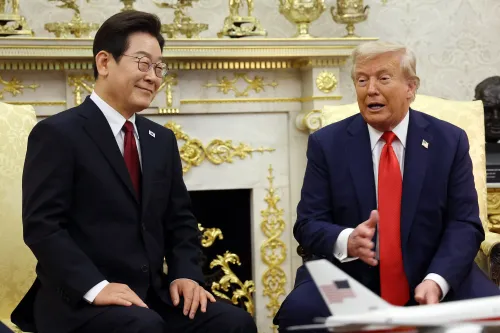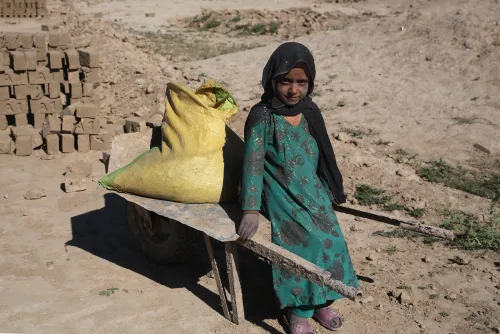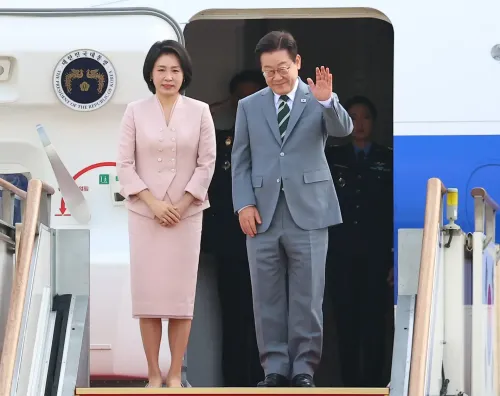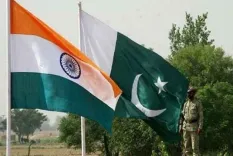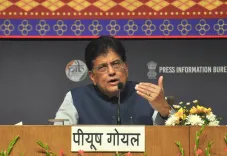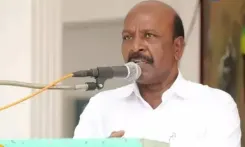Did Trump Just Hold a Unique Meeting with Qatar's Emir on Air Force One?
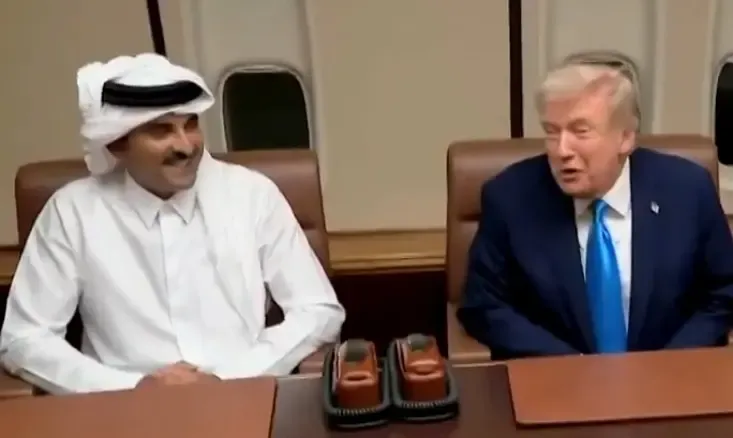
Synopsis
Key Takeaways
- Unprecedented meeting aboard Air Force One highlights diplomatic efforts.
- Qatar's role in mediating the Israel-Hamas peace deal is significant.
- International stabilization force planned for Gaza is crucial for peace.
- Challenges remain regarding disarmament and maintaining order.
- Trade discussions during Trump's Asia trip also essential.
Doha, Oct 26 (NationPress) In an unprecedented meeting aboard Air Force One, US President Donald Trump engaged in discussions with Sheikh Tamim bin Hamad al-Thani, the Emir of Qatar, during a refueling pause on his journey to Malaysia.
Following their conversations while the aircraft was stationed at Al Udeid Air Base on Saturday, Trump announced that an international stabilization force for Gaza was in the works and that Qatar would be providing troops.
During the meeting with Qatar's Emir and Prime Minister Sheikh Mohammed bin Abdulrahman bin Jassim al-Thani, Trump expressed gratitude for their mediation efforts that led to the peace agreement between Israel and Hamas.
"What we've accomplished is remarkable -- bringing peace to the Middle East -- and they played a crucial role in it, so my sincere thanks," he stated.
He further remarked, "You have a secure Middle East. Maintain it that way."
The Qatari Emir responded, "I hope so."
The Emir and the Prime Minister arrived at the Al Udeid Air Base, the largest US military installation in the area, for their discussion.
At the outset of their conversation, the Emir said, "As soon as I learned he was coming to refuel, I insisted, 'I cannot let him depart without coming to greet him.'"
Regarding the airborne summit, Trump commented, "You don't often witness this."
The Emir replied, "No, this is a first."
Trump added, "I doubt he has ever done this before."
In conjunction with Turkey, Qatar served as a key mediator in the negotiations between Hamas and Israel, aimed at concluding the two-year conflict in Gaza, culminating in a 20-point peace agreement proposed by Trump this month.
An Israeli strike targeted a building in Qatar where Hamas negotiators were present, nearly derailing the talks and angering Trump.
Though Hamas leaders managed to escape, a Qatari personnel lost their life.
Trump compelled Israeli Prime Minister Benjamin Netanyahu to publicly apologize to the Emir during a phone call while visiting the White House.
With the initial stages of the peace agreement -- involving the release of hostages by Hamas and prisoners by Israel, along with the return of hostages' remains -- nearing completion and a fragile ceasefire largely holding in Gaza, the next challenge involves persuading the terrorist organization to disarm or be forced to.
The inclusion of Qatari troops is deemed critical for the international stabilization force outlined in the peace agreement, aimed at disarming Hamas and overseeing Gaza until a Palestinian police force can be established.
US Secretary of State Marco Rubio, who is traveling separately, mentioned, "Numerous countries have shown interest in contributing, whether financially or with personnel, or both."
However, he noted that a United Nations Security Council or another international mandate would be necessary "due to their domestic laws."
Rubio plans to meet with Qatari officials during his stopover on his way to Asia.
Trump's itinerary includes two summits: ASEAN in Kuala Lumpur, and the Asia-Pacific Economic Cooperation (APEC) in Gyeongju, South Korea, with a visit to Japan in between, all focusing on trade, tariffs, and investments.
However, his scheduled meeting with China's President Xi Jinping in South Korea is expected to overshadow the trip, both visually and politically.
Trump aims to establish a trade agreement that addresses the recent disputes over China's restrictions on the export and use of rare earth products and the boycott of certain US agricultural goods, along with US technology controls and punitive tariffs that could exceed 150%.

